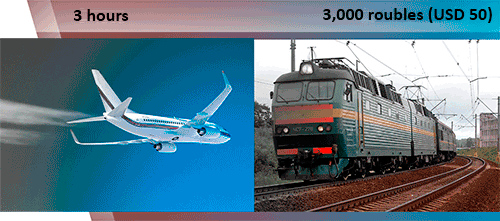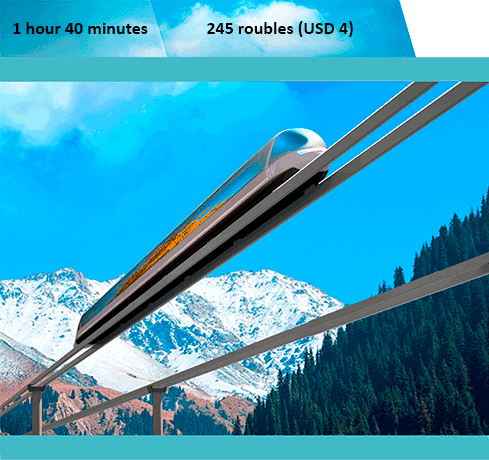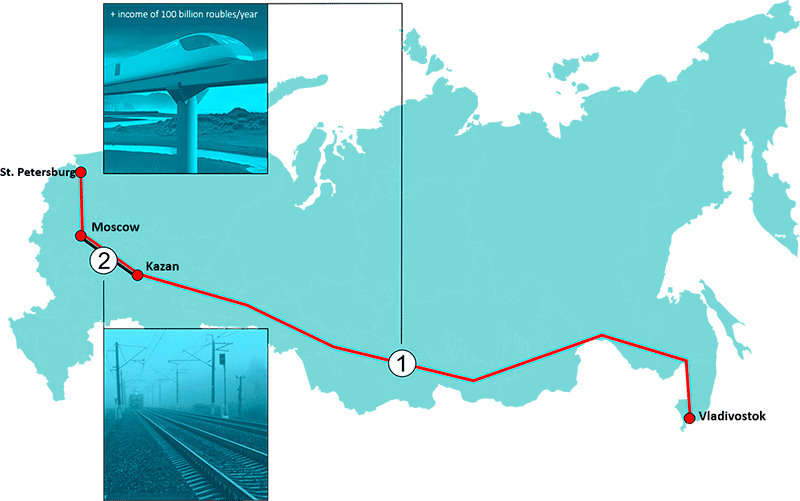
Unitsky String Technologies


 |
Unitsky String Technologies |


|
Site news
|
21 January 2014 |
|
Affordability: from the center of Moscow to the center of St. Petersburg within 1 hour and 40 minutes and for USD 8.40 
A passenger will get from the center of Moscow to the center of St. Petersburg (650 km) by the fastest modern transport (aviation), at best, within 3 hours. That means at an average speed of 220 km/h, after having suffered fear in the air and hardship in the initial and final stages of this journey: "City - Airport" and "Airport - City". That will also lead to a substantial increase in the cost of such travel, which will hardly be less than 3,000 roubles (USD 50). A huge railway train of thousands tons weight, loading rails to the limit and literally sucking animals and humans under its wheels, can not drive safely at high speed along the built-up and densely populated areas. Therefore it has to slow down, and even in their boldest forecasts railwaymen plan to get from Moscow to St. Petersburg within 3 hours (average speed of 220 km/h) and for 3,000 roubles. In string transport, such ride will take 1 hour and 40 minutes (average speed of 390 km/h) at the net cost of 245 roubles (USD 4) for the delivery of a passenger. 
Little time of travel is ensured due to not only high speed, but also different transport logistics. Small capacity rail cars - unibuses, - equal by capacity to a small bus, will start often, without a schedule, by fixed-route taxi type. In addition, they will not stop in between - other unibuses will go to the city of Tver on the route, and their final destination will be Tver. Low net cost of travel (245 rouble/passenger) is due to:
All the conventional high-speed routes - railways and magnetic levitation routes - are unprofitable because of both their high construction costs, and high cost of operation. They try to raise profitability by increasing ticket prices, making these services unaffordable for many categories of users. Only string track routes, built by SkyWay technologies will be highly profitable. For example, on the route "Moscow - St. Petersburg", at the ticket price of only 500 roubles, the income of the operating company will be 255 rouble/passenger. Then, with the volume of traffic of 50,000 passengers per day, annual income will be equal to 4.6 billion roubles and profitability of the high-speed route will exceed 100%. Key indicators of the similar high-speed railway "Moscow - Kazan" with the length of 820 km, planned to be built by the Russian government are as follows: the construction will cost 925 billion roubles and some more 315 billion the railwaymen intend to receive as a government subsidy for the operational phase, as the project as a whole is deeply unprofitable. For the same money built can be a string route "St. Petersburg - Moscow - Kazan - Vladivostok", which, at a very low cost of tickets, i.e. being affordable for all categories of the country residents, will, however, bring income of about 100 billion roubles/year. 
|
|
© 1977—2017 Anatoly Yunitskiy. All Rights Reserved. |
||